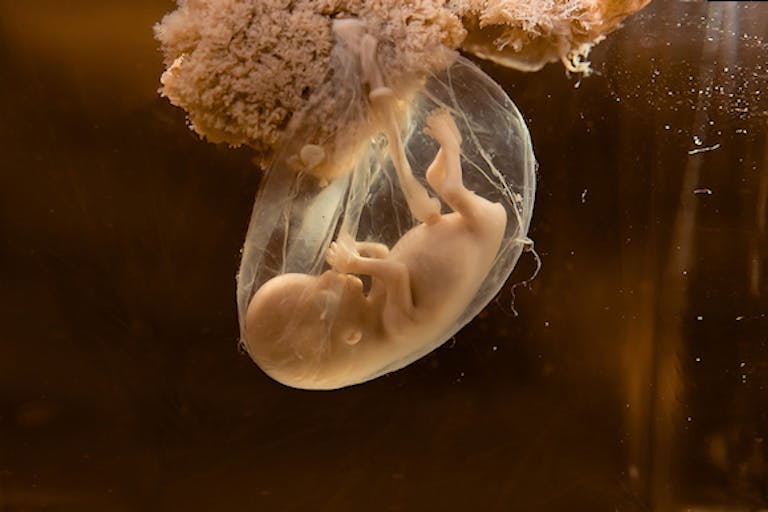
Full term 'miracle' baby born after 'unprecedented' ectopic pregnancy
Bridget Sielicki
·
The pro-choice dilemma
Every scientist on the planet agrees that a human fetus is a human being, that is, a member of the species Homo sapiens.
The question at the heart of the elective abortion controversy is not, “Is the human fetus a human being?” Rather, the question is, “Which human beings have human rights?”
Therefore, the recent article published in the Journal of Medical Ethics (which recently appears to have been taken offline) has put the pro choice movement in a rather difficult position. The authors argue that since a fetus does not have human rights, neither does a newborn infant. They suggest that more countries should legalize infanticide, a procedure they label “after-birth abortion“.
Presumably, the mainstream pro choice movement disagrees with this conclusion, but how can they respond to such an argument? How can one demonstrate that a human fetus does not have human rights while at the same time maintaining that a newborn infant does?
As far as I can tell, there are only two possible arguments:
1) A human fetus does not have human rights because she is still in her mother’s womb.
Article continues below
Dear Reader,
Have you ever wanted to share the miracle of human development with little ones? Live Action is proud to present the "Baby Olivia" board book, which presents the content of Live Action's "Baby Olivia" fetal development video in a fun, new format. It's perfect for helping little minds understand the complex and beautiful process of human development in the womb.
Receive our brand new Baby Olivia board book when you give a one-time gift of $30 or more (or begin a new monthly gift of $15 or more).
This argument ties human rights to the event of birth. Therefore, while it allows one to maintain that a newborn infant has human rights, anyone promoting this argument can not object to any abortion procedure performed for any reason during any stage of the pregnancy. If argument (1) is true, then any abortion is acceptable because a fetus, even at 9 months, does not have human rights. If a woman decided to have this procedure performed on her female fetus in the third trimester because she wanted a son, no one holding to argument (1) could object. Therefore, most will find argument (1) untenable.
2) A human fetus has human rights only after a certain point in her gestation.
The problem with this argument is that it is hopelessly arbitrary. Abortion laws are often based on the trimester system, but of course there is no event that separates the first trimester from the second trimester or the second trimester from the third trimester. Why should a human being receive human rights at, say, 12 weeks and not 13 weeks?
However, anchoring the argument to a particular event in the gestation of the fetus is rather difficult. For example, imagine a three-way debate between an ethicist who believes that human beings receive human rights after the first heartbeat (about 3 weeks after conception), an ethicist who believes human beings receive human rights after the first detectable brain activity (about 6 weeks after conception), and an ethicist who believes human beings receive human rights after the first observable breathing motions (about 9 weeks after conception). What arguments could they marshal to defend the particular event they have chosen over and against the other two events? How could they demonstrate that their choice was not arbitrary?
In the face of this dilemma, many in the pro choice movement may simply give up the philosophical approach and fall back on the emotional arguments that are so common in popular-level discussions. They will argue that abortion should be legal because the woman might have been raped, or the child might be handicapped, or the family might be poor. But as persuasive as these arguments might be, all of them have one fatal flaw: these arguments can all be used just as effectively to defend infanticide. (See my post, 7 Arguments for Infanticide.)
Murray Vasser is a 26-year-old student who blogs here.
Live Action News is pro-life news and commentary from a pro-life perspective.
Contact editor@liveaction.org for questions, corrections, or if you are seeking permission to reprint any Live Action News content.
Guest Articles: To submit a guest article to Live Action News, email editor@liveaction.org with an attached Word document of 800-1000 words. Please also attach any photos relevant to your submission if applicable. If your submission is accepted for publication, you will be notified within three weeks. Guest articles are not compensated (see our Open License Agreement). Thank you for your interest in Live Action News!

Bridget Sielicki
·
Human Rights
Carole Novielli
·
International
Angeline Tan
·
Human Rights
Nancy Flanders
·
Human Rights
Angeline Tan
·
Human Rights
Angeline Tan
·
Issues
Murray Vasser
·
Issues
Murray Vasser
·
Human Rights
Murray Vasser
·
Analysis
Murray Vasser
·
Opinion
Murray Vasser
·